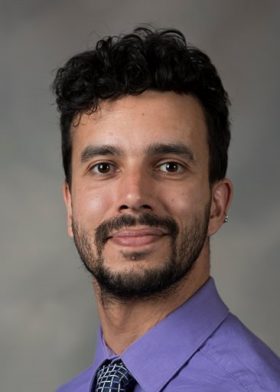Raj Ghoshal and Alexis Franzese presented research in August at the American Sociological Association's Media Sociology Preconference and its Teaching & Learning Symposium.

Ghoshal, an assistant professor, presented “Dynamic Racial Triangulation” at the ASA’s Media Sociology Pre-Conference. The project tests and updates racial triangulation theory.

Findings validate parts of the original triangulation theory, but also show that the original theory underestimates cultural stereotyping against African Americans and misses how widely perceptions of Latinx and Asian Americans can vary depending on signals other than race.
Franzese, an associate professor, presented her research “Using Contemplative Pedagogies to Enhance Authentic Engagement and Personal Authenticity in the Sociology Classroom” at the inaugural Teaching & Learning Symposium of the American Sociological Association.
Franzese’s work, supported by Elon’s Center for the Advancement of Teaching and Learning (CATL), addresses the ways in which contemplative practices and pedagogies may be used to facilitate student engagement and create a more authentic learning experience and environment.


